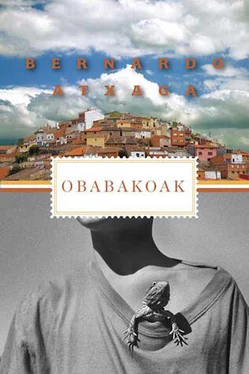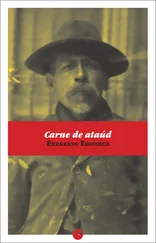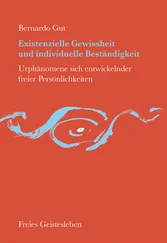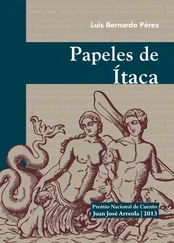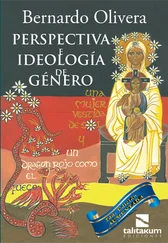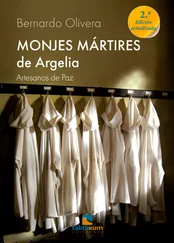Bernardo Atxaga - Obabakoak
Здесь есть возможность читать онлайн «Bernardo Atxaga - Obabakoak» весь текст электронной книги совершенно бесплатно (целиком полную версию без сокращений). В некоторых случаях можно слушать аудио, скачать через торрент в формате fb2 и присутствует краткое содержание. Год выпуска: 2010, Издательство: Graywolf Press, Жанр: Современная проза, на английском языке. Описание произведения, (предисловие) а так же отзывы посетителей доступны на портале библиотеки ЛибКат.
- Название:Obabakoak
- Автор:
- Издательство:Graywolf Press
- Жанр:
- Год:2010
- ISBN:нет данных
- Рейтинг книги:3 / 5. Голосов: 1
-
Избранное:Добавить в избранное
- Отзывы:
-
Ваша оценка:
- 60
- 1
- 2
- 3
- 4
- 5
Obabakoak: краткое содержание, описание и аннотация
Предлагаем к чтению аннотацию, описание, краткое содержание или предисловие (зависит от того, что написал сам автор книги «Obabakoak»). Если вы не нашли необходимую информацию о книге — напишите в комментариях, мы постараемся отыскать её.
Obabakoak
The Observer
Obabakoak — читать онлайн бесплатно полную книгу (весь текст) целиком
Ниже представлен текст книги, разбитый по страницам. Система сохранения места последней прочитанной страницы, позволяет с удобством читать онлайн бесплатно книгу «Obabakoak», без необходимости каждый раз заново искать на чём Вы остановились. Поставьте закладку, и сможете в любой момент перейти на страницу, на которой закончили чтение.
Интервал:
Закладка:
“We’re in for a good time then.”
“I hope so. Besides, you know how well we always eat on these occasions!”
“Like princes!” exclaimed my friend emphatically.
We were back at the car. The noise and music from the fiesta were far from us again and my friend and I — at peace at last, breathing easily and enjoying the quiet — smoked a farewell cigarette. Our final reflection was dedicated, of course, to Mr. Smith.
“It’s a shame he didn’t come with us. He wouldn’t have made a bad companion at tomorrow’s session,” my friend said.
“It’s my fault. I did think of inviting him, but then I lost my nerve,” I replied.
“There have been a lot of unknowns tonight, haven’t there? Ismael’s lizards, Mr. Smith’s stories…”
“I should say! I haven’t had such a strange night for ages!”
“Nor have I. But it’s been really good. It’s nights like this that make life bearable.”
“Anyway, let’s go,” I said, starting the engine.
There were one hundred and twenty-seven bends in the road between that village and Obaba: eighty uphill, rising gently to the top of a long slope, and from there, over the other side of the mountain, another forty-seven downhill. It took a little over half an hour to drive, through forests all the way, leaving the sea behind us.
Despite all the bends our journey along the road of moths that night turned out to be a safe, quiet drive through the trees; the lights of the few cars coming in the opposite direction were visible long before they reached us.
“How do you know there are one hundred and twenty-seven bends?” my friend asked me when we’d already driven around twenty of them.
“I told you earlier that I spent my whole childhood cycling around here. The number of times I’ve ridden up here, pedaling furiously and shouting: forty! forty-one! forty-two! I know these bends by heart,” I went on, “See that one up ahead? Well if you count the bends coming from Obaba it’s number one hundred. But if you count from the village we’ve just left, it’s number twenty-seven.”
“It must be a very special place for you,” my friend said, smiling.
“Not just because it’s the hundredth one, but because of the fountain there used to be up here. Well, that still is up here. You saw the ditch that crossed it,” I replied… speaking in the past tense, of course, because no sooner had he asked the question than bend number one hundred was behind us.
My friend remained silent and I let myself be carried along by memories.
“This road meant a lot to us. As did the bicycle, of course. For the children in Obaba, from about the age of seven onward, learning to ride a bike was the number one priority. The arithmetic and grammar they taught at school didn’t matter, neither did the Bible history they talked about in the church sacristy; the only thing that mattered was attending the cycling classes held by the older boys in the square in Obaba and securing a place among the elect group who could go anywhere on two wheels. And if you couldn’t do that by the time you were nine or ten, then you became marginalized, a second-class kid…”
I cut short the thread of my memories at that point and indicated something to our left. We had just entered the straight stretch of road that, counting from Obaba, followed bend number eighty-eight. It formed a natural belvedere from which, by day, you could see first the broad valley and, beyond that, the beaches and the sea.
“The view’s pretty good at night too,” said my friend.
“See those lights in the distance?” I asked.
“What are they? Houses or ships?”
“Ships.”
We slowed down and drove that stretch of road staring out at the lights, slightly astonished at how near the coast seemed to be, simply because the air was so dear.
“How much farther to the top?” my friend asked once the view had disappeared. We were going uphill again now.
“About another forty bends. But don’t worry, once we get there we can look down on the whole valley of Obaba. Just a few more and we’re home! It’s hard going though, isn’t it?” I added.
“It certainly is. And you say you used to come up here on your bikes…”
“A couple of times a week, what’s more.”
“You were real cyclists then!”
“Not as good as Hilario, though…”
“Hilario?”
“Yes, Hilario: the best racing cyclist in the world. And born in Obaba into the bargain.”
Naturally my friend didn’t know who I meant and so I settled down to the eleventh memory of the night — too many perhaps for one journey, too many, even, for one book. But that night my memory was like dry tinder, which the heat generated by the landscape set burning.
“He had a pale blue racing bike, one of those that are light enough to lift with one finger,” I began, once I’d apologized for my fondness for memories, “and every evening he’d put on his shorts and his bright-colored jersey and cycle off to train along the roads around the village. Whenever he passed us we’d shout: ‘There goes Hilario!’ And when he cycled up behind us and overtook us on this very road, we’d always be full of appreciative comments: ‘Did you see the way he passed us? Like a bat out of hell! He’s an amazing cyclist!’ In short, we admired him. We ourselves sped downhill crouched right over the handlebars, and we were pretty good, miles better than the fainthearted cyclists who rode sedately around and around the square, but compared to Hilario we were nothing. He was in a class of his own. And if, for example, one of the older boys suggested to us that Hilario wasn’t really that good, we’d immediately say: ‘What do you mean he isn’t that good? How come they let him wear that cycling jersey then?’ And if the boy made some remark along the lines of ‘Anyone can get a jersey,’ we’d burst out laughing: ‘Oh, they can, can they? Why don’t you go and ask for one then? Go on, and let’s see what you come back with!’ Well, when you’re a child, all arguments tend to be ad hominem since it’s generally assumed that the motivating force behind most human actions is envy. Not such a false assumption, it must be said.
Besides, we had proof. There were, for example, the three photographs hanging on the walls of Obaba’s smartest bar: Hilario smiling, Hilario with his arms raised in triumph, Hilario crossing the finishing line first. It was no use some envious villager trying to convince us otherwise. Our faith in him was unshakable.
And one day, before we’d had time to grow up a bit, a cycle race was announced. The race would pass right through Obaba, along the very road we’re driving now. ‘And Hilario’s competing too,’ someone must have said. And the news became a chant that we never tired of repeating among ourselves.
The day of the race arrived, a Sunday, and we all went up to the top of the pass, where we’re going now in fact… and what’s more we walked up; our parents wouldn’t let us go on our bikes because of all the cars, and as soon as we got to the top, we went and sat down on that mound over there, do you see it?”
“Yes, yes, I see it,” said my friend.
“We came up here to get a better perspective on the race and because this was the final uphill stretch on the route.”
“And…?”
“Well, we were sitting on the mound when, suddenly, a murmur ran through the crowd, horns sounded, a rocket exploded, and the cyclists were upon us. ‘There are three breakaways! Three breakaways!’ someone shouted and we all craned our necks, preparing ourselves to see Hilario. Because, of course, we just took it for granted that he would be among the three in the lead; we hadn’t the slightest doubt. We waited a little longer and then the three cyclists appeared around the bend, about to make the sprint to the top and win the mountain prize. ‘Come on, Hilario!’ one of us shouted. But why that cry of ‘Come on, Hilario!’? Was he among the three? No, he wasn’t. It was odd, but not one of the three leaders was Hilario.
Читать дальшеИнтервал:
Закладка:
Похожие книги на «Obabakoak»
Представляем Вашему вниманию похожие книги на «Obabakoak» списком для выбора. Мы отобрали схожую по названию и смыслу литературу в надежде предоставить читателям больше вариантов отыскать новые, интересные, ещё непрочитанные произведения.
Обсуждение, отзывы о книге «Obabakoak» и просто собственные мнения читателей. Оставьте ваши комментарии, напишите, что Вы думаете о произведении, его смысле или главных героях. Укажите что конкретно понравилось, а что нет, и почему Вы так считаете.
